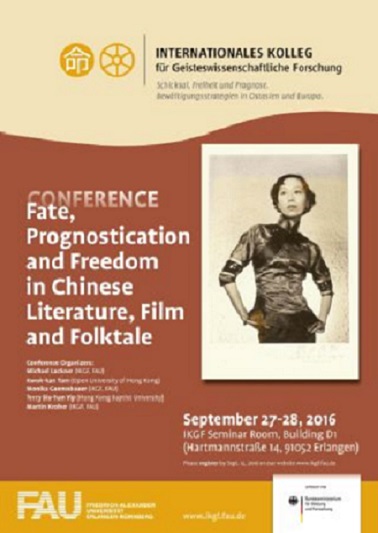Workshop: Fate, Prognostication and Freedom in Chinese Literature, Film and Folktale
Both Oedipus and Macbeth are classic examples of how a human being acts as an agent in realizing a prediction, while thinking that they are the master of their fate. Human agency has a double sense of being master and being an agent of someone or something else. In the Oedipus case, Oedipus becomes the agent of fate because it is he who makes it come true. In classical as well as modern Chinese literature, there are many such stories in fiction or in drama. It is in this double sense that fate works as a paradox in life.
The modern Chinese concept of fate may be different, because it is often seen as an expansion of the traditional concept by incorporating social and psychological elements. In the case of Lao She, he sees that the human subject is doomed because life is fated and is socially determined. Lao She does not deal with prophecy, or he does not believe in it, but he reveals that the human subject cannot transcend socially-determined fate, no matter how hard a person struggles against it. So are other modern Chinese writers, such as Aileen Chang (Zhang Ailing) and Xi Xi, who see life as predicated in fate and all struggles against fate as doomed. Instead, they depict the psychological state of fictional characters who live under the threat of a looming fate.
http://ikgf.fau.de/events/upcoming-events/2016-07-workshop-literature-film.shtml
IKGF Seminar Room, Building D1
Hartmannstraße. 14,
91052 Erlangen

